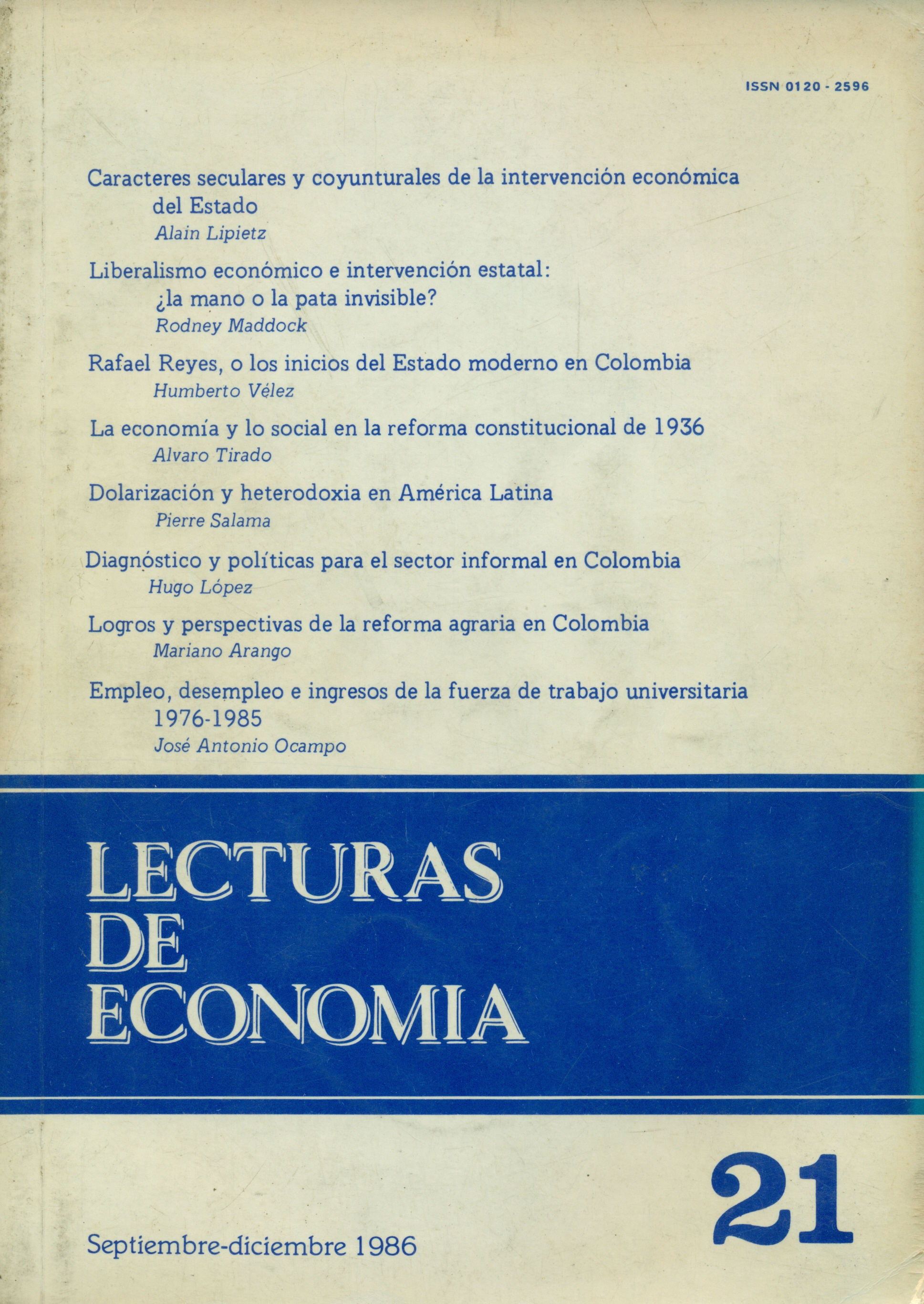Caracteres seculares y coyunturales de la intervención económica del Estado
DOI:
https://doi.org/10.17533/udea.le.n21a7948Abstract
• Resumen: Para hacer una revaluación de la noción marxista de Estado, en este artículo se destacan algunos aspectos del mismo, como son su condición de ser tanto aparato represor corno regulador, y el de ser fruto tanto de la división de intereses de la sociedad como del necesario compromiso entre sus partes. Así, no puede entenderse el Estado sin acompañarlo de la idea de hegemonía, con lo cual se desarrolla una nueva metodología para comprender las diversas formas de relación entre el Estado y la sociedad, especialmente las relaciones económicas; para estas últimas se propone el concepto de "modelo de desarrollo", el cual es la clave para entender tanto los períodos pasados como la crisis actual de la sociedad capitalista moderna.
• Abstract: This article draws out some elements of the Marxist notion of the State with the objective of re-evaluating them. The most important strands considered here are its ability to combine repressive and regulatory apparatuses, and the tensions implicit in the role of the State as representative of various social interests and its role as arbitrator in conflicts between social interests. It is suggested that the concept of hegemony is essential to understanding the State, and from that concept the author develops the idea of "development models" as vehicles for understanding the various economic relations between State and society in actual historical contexts.
Downloads
Downloads
Published
How to Cite
Issue
Section
License
This page, by Universidad de Antioquia, is licensed under a Creative Commons Attribution License.
Authors who publish with this journal agree to retain copyright and grant the journal right of first publication, with the article licensed under a Creative Commons Attribution-NonCommercial-ShareAlike License allowing others to share it as long as they acknowledge its authorship and original publication in this journal.
Authors can enter into separate, additional contractual arrangements for the non-exclusive distribution of the journal's published version of the work (e.g., post it to an institutional repository or publish it in a book), provided that these arrangements be not for profit and the journal be acknowledged as the original source of publication.
Authors are permitted and encouraged to post their papers online (e.g., in institutional repositories or on their websites), as it can lead to valuable exchanges as well as greater citation of the published work.







